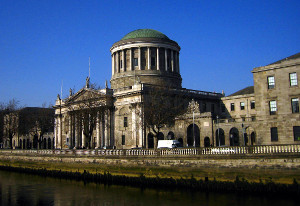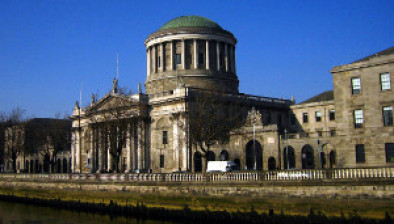High Court: Solicitor guilty of professional misconduct in relation to barrister’s fees

The High Court, on appeal from the Solicitors’ Disciplinary Tribunal, has held that a solicitor was guilty of professional misconduct for failing to use his best endeavours to recover a barrister’s fees in a large number of cases.

About this case:
- Citation:[2020] IEHC 520
- Judgment:
- Court:High Court
- Judge:Ms Justice Niamh Hyland
The judge said that failure to comply with obligations in respect of counsel’s fees on a widespread and enduring basis would ultimately bring the solicitors’ profession into disrepute.
Background
An appeal came before Ms Justice Niamh Hyland pursuant to the Solicitors (Amendment) Act 1960 s. 7(12A)(b) (as substituted by the Solicitors (Amendment) Act 1994 s.17 and as inserted by the Solicitors (Amendment) Act 2002 s.9(g)), which permits an appeal against a finding of a Disciplinary Tribunal that a solicitor has not been guilty of misconduct. Such appeal is not a de novo hearing, unlike an appeal where a solicitor is found guilty of misconduct.
DK (the barrister) initiated a complaint against MK (the solicitor) in February 2018 in respect of non-payment of fees. In May 2019 a division of the Solicitors’ Disciplinary Tribunal determined there was a prima facie case of misconduct on the part of the solicitor for inquiry by the Tribunal in respect of three allegations, the first being that the solicitor failed and continues to fail to use his best endeavours to recover the barrister’s fees in respect of 125 cases, the second being that he failed to pass on the portion of fees due to the barrister in respect of the 125 cases and the third being that he failed to provide a satisfactory explanation as to whether he has made any efforts to recover the barrister’s fees in respect of the 125 cases. By the time the case was heard, the number of cases in question had reduced to 93.
The Tribunal gave its decision in March 2020 and delivered its report in April 2020. It did not find the solicitor guilty of misconduct on any allegation. The barrister sought to challenge that decision.
High Court
Under s.7(12A), where a person appeals to the High Court against a finding of the Tribunal that there has been no misconduct, the High Court may either confirm the finding concerned or may rescind or vary any finding and may sanction the solicitor under s.8(1)(a), which sets out the available sanctions against a solicitor. There is no explicit power to remit to the Tribunal although both parties agreed that such a power may be implied.
Counsel for the barrister urged the court not to remit the matter back to the Tribunal but to rescind the findings and vary them to hold that the solicitor was guilty of professional misconduct in respect of all three allegations.
Counsel for the solicitor asked the judge to confirm the finding or, if minded to rescind any finding, to consider remitting it to the Tribunal. He argued that if the court did not remit it, then the solicitor would be deprived of the right of a full appeal against the decision following remittal. Ms Justice Hyland noted that no authority was cited, and she said that the court is provided “explicit statutory basis” to make a finding of professional misconduct by s.8(1)(a)
In rescinding the finding of the tribunal, the court refused to remit, stating that it was not necessary that any additional evidence was required before reaching a finding of professional misconduct. Given the supervisory jurisdiction of the High Court over solicitors, the nature of this dispute, and the explicit Law Society guidance on the payment of counsel’s fees (in the Guide to Good Professional Conduct for Solicitors and in its 2010 Practice Note “Payment of Counsel’s fees”), the court found that it was entitled to itself adjudicate upon professional misconduct. “I am in as good a position to resolve this question as a differently constituted body of the Tribunal, who would have to immerse themselves in this issue afresh.”
She said that, in the interests of finality, that the matter be concluded as soon as possible, as the first complaint to the Complaints and Client Relations Committee was from October 2014. The barrister first wrote terminating his relationship with the solicitor because of non-payment of fees in 2012, and the cases range back over 15 years.
Both parties agreed that the appeal was an appeal against error, with elements of an appeal on the record. The judge noted Ulster Bank Investment Funds Ltd v Financial Services Ombudsman [2006] IEHC 323, and the judgment of Mr Justice Frank Clarke in Fitzgibbon v Law Society of Ireland [2014] IESC 48 that she should only overturn the Tribunal’s decision where the barrister has persuaded her as a matter of probability that the decision of the Tribunal was vitiated by a serious and significant error or series of errors. The court said that the threshold for overturning a decision of a specialist tribunal is relatively high but that, as identified in Henry Denny & Sons (Ireland) Ltd v Minister for Social Welfare [1998] 1 IR 34:“Where conclusions are based upon an identifiable error of law or an unsustainable finding of fact by a tribunal such conclusions must be corrected”.
Ms Justice Hyland also said that she was conscious that the court should exercise curial deference towards decisions made by specialist tribunals, albeit that being modified in the case of solicitors given the supervisory jurisdiction that the High Court exercises over them.
The barrister submitted that the solicitor did not issue any fee notes, the subject of this allegation, to the respective clients, breaching the minimum obligations identified by the Law Society. The Tribunal, he said, failed to consider evidence that the solicitor did not pass the barrister’s fee note to the clients or that the solicitor had received fees in some cases and had not paid the barrister a portion of the fees.
The barrister disputed the Tribunal’s reasoning with respect to the solicitor not being guilty of misconduct on the basis that the barrister delayed in submitting his fee notes, and that some fee notes were issued after the breakdown in relations between the parties. The Tribunal’s decision had a basic and fundamental factual error, on dates mentioned, and he also submitted that there was an agreement between the parties to issue fee notes when it was clear that a particular matter had come to an end or if fee notes were sought.
The solicitor submitted that the Tribunal did not fall into error, either of law or of unsustainable finding of fact, and that the determination of the Tribunal should not be disturbed. He argued that the barrister has the onus in proving that the Tribunal failed to consider/ignored evidence, and he said that this onus was not discharged.
The judge found that the solicitor failed and continues to fail to use his best endeavours to recover the barrister’s fees. She then considered whether this constituted professional misconduct, including whether it met the criteria in relation to seriousness identified in Corbally v Medical Council and Others [2015] 2 IR 304.
The court said that members of the public would be concerned “about a practice where one professional prevents bills issued by another professional from even reaching the client. Where a solicitor disregards the obligation to use best endeavours to recover fees, it adversely affects not only counsel but also clients, as solicitors who do not attempt to recover counsel’s fees will soon find it impossible to obtain good counsel who will properly represent their clients’ interests.”
The judge said that a failure to comply with obligations in respect of counsel’s fees on a widespread and enduring basis, as was the case here, will ultimately bring the profession into disrepute.
The failure to present fee notes and to seek to recover same, makes it more difficult to understand whether solicitors have complied with other obligations in respect of fees, in particular the obligation not to pay themselves to the exclusion of counsel: “If a client is not presented with counsel’s fee note, and makes part payment in a case, it may make it significantly more difficult to identify whether the solicitor has kept fees intended for counsel, as no part of the payment from the client is identifiable as being in respect of counsel’s fees.”
Conclusion
While upholding the Tribunal’s findings on the other allegations, the court rescinded the Tribunal’s decision to the effect that the solicitor was not guilty of professional misconduct, and varied it to conclude that the solicitor was guilty of professional misconduct. The judge will afford both parties time for submissions on the sanction to be imposed under s.8.












